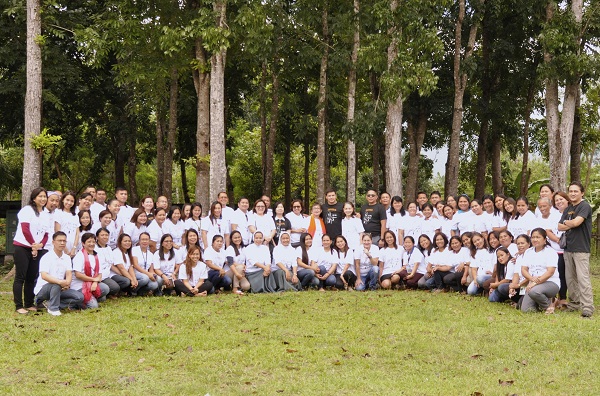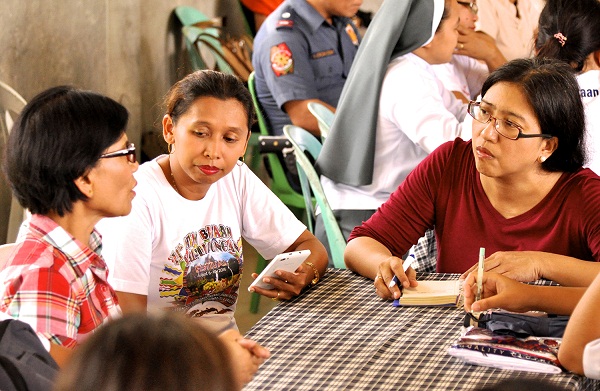Four years have passed since the devastation brought about by Typhoon Pablo visited Barangay Cabinuangan in New Bataan, Compostela Valley. During these years, the barangay has already seen much improvement – damages to habitations have been repaired, crops have been replanted, boulders and debris from landslides have been removed, and major infrastructures have been made operational. Although these steps have been taken to reinvigorate the barangay and to bring hope to its residents, the shadow of Typhoon Pablo is still felt.
Even though local and national government, as well as several non-governmental organizations, have addressed immediate relief and daily needs, the scars of the disaster are still felt due to the limited psychological and emotional support available to residents. A number of kids, and even their parents, are still displaying signs of anxiety, stress and panic during brief bouts of rain due to the traumatic memories from Typhoon Pablo. Children have been reported to still wake up from nightmares about the typhoon.

In response to the limited psychosocial and emotional resources available not just to Barangay Cabinuangan but to the hundreds of towns in the country that are exposed to natural disasters every year, MLAC Institute for Psychosocial Services, Inc. in partnership with TELUS International Philippines (TIP) Community Board and Hijo Resources Corporation, came together to develop a guide that can be used by trauma workers to assist them in helping others towards the road to recovery. This trauma and recovery primer was recently launched in Barangay Cabinuangan and a trauma healing seminar was conducted for trauma workers on December 6, 2016.
Called “Presence: A Primer on Trauma and Recovery for the Use of Trauma Workers”, the book can be used to aid people who encounter individuals or groups who have gone through traumatic experiences, not just limited to disasters like typhoons but also physical abuse, prostitution, loss of loved ones, and other devastating scenarios. Ideally, one trauma worker can accommodate up to 20 patients in one session, so a primer such as this can go a long way towards empowering barangays and local governments in terms of trauma stewardship and emphasizing the importance of Psychological First Aid.

After the book launch, a trauma healing seminar session was conducted to trauma workers including teachers from nine different schools in New Bataan, the New Bataan Police Force, local government unit staff, day care workers, social welfare office workers, and even representatives from the Philippine Army 1st Battalion 66th Infantry and Battalion 10th Infantry Division. During the session, the participants were divided into five groups with each group facilitated by an MLAC psychologist. They were taught the framework of trauma recovery management and an experience sharing activity was conducted to help them appreciate the importance of compassionate understanding for both the survivor and the helper.
TIP and MLAC is looking forward to making copies of the book available all over the country and plans for creating versions of the book in different local dialects is already underway. MLAC has also been engaged by other local government units, most recently by the local government of Pasig who invited them to hold a training session for their social workers. The Department of Health now also considers psychological first aid as one of the basic needs to be addressed for trauma victims, a progressive step towards ensuring that the impact of trauma especially due to disasters is minimized on a national level.

